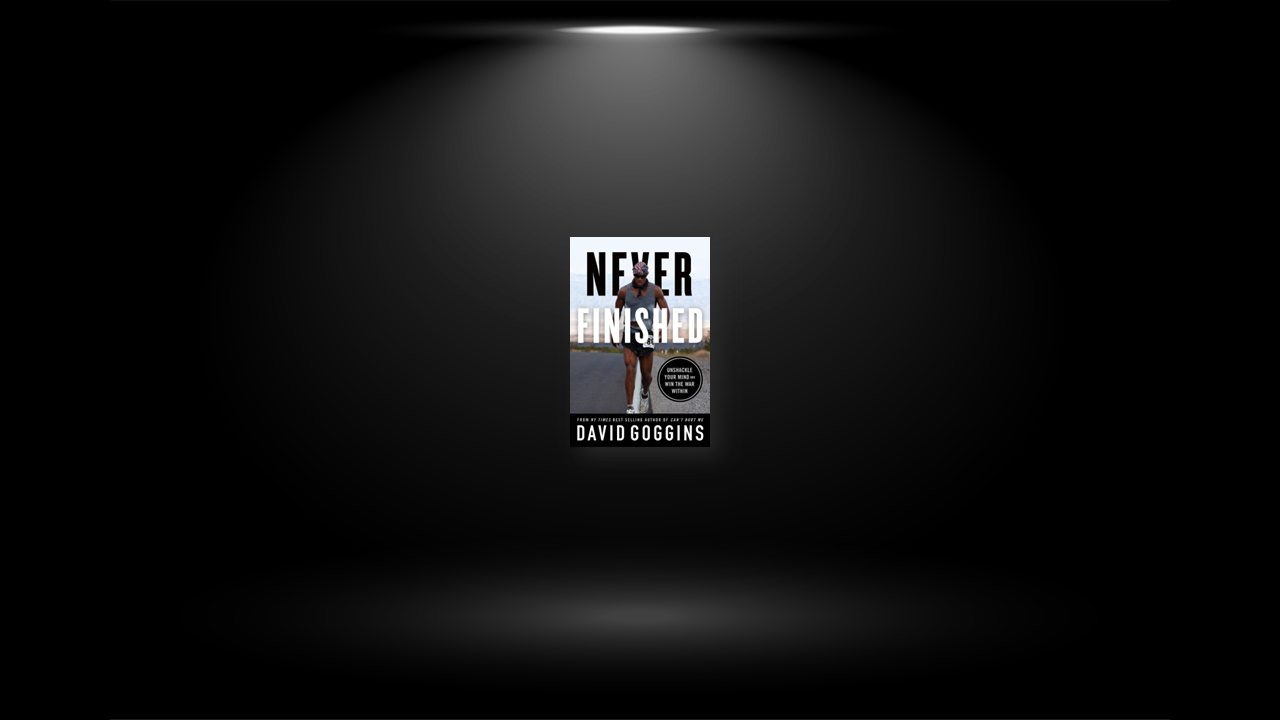Lesson #1
Like medics on the scene of a car accident, we all must act with a sense of urgency and tune into that ticking clock in the back of our minds. Because there is a drop-dead time on everything we do in life. All our dreams and visions come with expiration dates etched in invisible ink.
Windows of opportunity can and do close, so it is imperative that we do not waste time on bullshit. None of us have any clue what’s coming for us or when our time might run out, which is why David does his best to ignore anything that is counterproductive. Now, he is not suggesting we act like robots, but we need to understand that forward motion gives our lives momentum. We need to remember that sometimes chaos will descend and a clear highway can be wiped out by a flash flood in the blink of an eye.
When that happens, a lot of people look for a cozy place to hunker down and hide out until the storm passes. “I’m only human,” they say. When holy hell rains down upon them and they feel drained and powerless, they cannot conceive of a way to keep going. Because the second you utter those words, the white towel is fluttering in the air, and your mind stops looking for more fuel.
David believes there is no towel in our corner. There is only water and a cut man. And if those are your only options, you have no choice but to keep fighting until you overcome every last thing that once held you back.
Lesson #2
Everything must be utilized. Especially the energy in volatile, potentially damaging emotions like fear and hate. You have to learn how to handle them—how to mine them—and once you master that craft, any negative emotion or event that bubbles up in your brain or gets lobbed your way, like a grenade, can be used as fuel to make you better. But to get there, you must literally listen to yourself.
Many people write out their darkest moments in a journal or diary and hope to gain some leverage on whatever it is they survived or are struggling to overcome. David has kept a journal for years, but he reminds that a written archive is just the entry level. Audio recordings are more interactive and accessible and have a more profound effect on the mind.
If you were bullied, abused, or sexually assaulted and are willing to speak the unfiltered truth into the microphone and listen to it over and over, after a period of time, it will become just another story. A powerful story, for sure, but the poison will be neutralized, and the power will be yours.
This is not a task to take lightly. If you’ve survived acute trauma, you don’t want to think about what you were doing on the day it happened, what you heard and how you felt, or how your life capsized afterward. Do it anyway. The more color and context you can add to the track, the sooner you will walk the streets with your headphones on and your head held high. When people see you coming, they might think you’re listening to an Eminem jam. But no, it’s your deepest trauma, the scene of your supposed destruction, on repeat. With each subsequent listen, you will claim more and more power and gain enough transformational energy to change your life.
Lesson #3
Many dreams die while suffering. Think about it. We conjure our biggest dreams, our most audacious goals, when we feel safe and warm. Even if you’re struggling financially, emotionally, spiritually, or physically, your grand plan to defy the odds probably came to you in a moment of comfort, when you had time to evaluate where you are and how you got there. There is no space for big-picture thinking when you’re in the heat of battle. When all is calm, even temporarily, damn near anything can feel possible. So that’s when you dream it up and map it all out.
Then you begin and unforeseen challenges knock you the fuck back. Whenever you’re engaged in an intense struggle, the result of which will have a major impact on your life going forward, you will be challenged to your utmost—and these moments of truth within a larger quest can demand so much from you that you are bound to feel overmatched at times. When that happens, many people panic because they come to believe that they are imposters and their dream was actually a fantasy. In a blink, they go from being driven and focused to becoming convinced that they had no business even trying. So they quit.
Most SEAL instructors love quitters. When you tell them that you’re too cold and you want out, they are more than happy to take you by the hand and lead you to the warmest shower of your life because, in their minds, it proves that they are better than you. Once you step into that shower, you get so warm within a minute that you forget what being cold even felt like, and then, you realize that your warmth just cost you a piece of your soul, if not the whole damn thing, which can lead to a lifetime of regret.
Everything in life comes down to how we handle those crucial seconds. When psychological, physical, or emotional pressure redlines, your adrenal glands go haywire, and you are no longer in control. What separates a true savage from everybody else is the ability to regain control of their mind in that split second, despite the fact that all is still hell.
Life, like Navy SEAL ‘Hell Week’, is built on seconds that you must win, repeatedly. David is not saying you have to be hyperaware every second of your life, but if you are pursuing something that demands all you’ve got and means the world to you, that is often what it takes.
Lesson #4
Pity is a soothing balm that turns toxic. At first, when your family and friends commiserate with you and validate the reasons you have for grumbling about your circumstances, it lands like sympathy. But the more comfort pity brings you, the more external validation you’ll crave and the less independent you will become. Which will make it that much more difficult for you to gain any traction in life. That’s the vicious cycle of pity. It saps self-esteem and inner strength, which makes it harder to succeed, and with each subsequent failure, you will be more tempted to pity yourself.
Every minute you spend feeling sorry for yourself is another minute not getting better, another morning you miss at the gym, another evening wasted without studying. Another day burned when you didn’t make any progress toward your dreams, ambitions, and deepest desires. The ones you’ve had in your head and heart your entire life.
Every minute you spend feeling sorry for yourself is another minute spent in the dungeon thinking about what you lost or the opportunities that have been snatched away or squandered, which inevitably leads to the Great Depression.
The only thing that ever matters is the present moment. Yet too many people let their depression or regret hijack their day. They let their feelings about the past hijack their lives. Perhaps their fiancé left them at the altar, or they got fired without cause. Guess what? One day, they will pan back and realize that nobody cared about any of that but them.
Don’t feel sorry for yourself. Get strategic. Attack the problem. When you adapt, you will begin to see everything that comes your way as a stepping stone on your progression toward a higher plane
Lesson #5
Small minds and weak people kill big dreams. You might have clear goals and be working on yourself every day, but if you have the wrong folks around you, there’s a good chance they could be sucking the life right out of you and making sure that you go nowhere.
In military speak, the foxhole is a fighting position. In life, it’s your inner circle. These are the people you surround yourself with. They know your history and are aware of your future goals and past limitations. But because it’s a fighting position, a foxhole can just as easily become your grave. Therefore, it is crucial that you be careful about who you invite in. Whether you are at war, competing in a game, or striving in life, you never want someone in your foxhole who lacks faith or will try to steer you away from your full potential by giving you permission to pack it in or wave the white flag when things look bleak.
You want the husband or wife who, when you snooze that alarm on a freezing mid-winter morning before dawn, shakes you awake so you don’t miss your training run. When you’re dieting and whine about being bored of eating the same bland foods every day, they remind you of all the progress you have made, of all the hard work you have put in, and happily eat the same bland foods alongside you. When you say you’re tired from all the late-night studying, they stay up late with you to help you study.
You want the type of race crew who, when you’re suffering on the trail, are inspired by bearing witness to your struggle. They know it is proof of your effort. In turn, their refusal to give up on you can only inspire you to tap the reserves you’d forgotten were there and give more. They know the only time to shut down and walk away is after all options have been exhausted. Even if that means yet another sleepless night or a last-minute change of schedule. When those are the in your foxhole, how can you not stay in the fight?
Lesson #6
Just as words can be redefined, never doubt that we can redefine ourselves. It can feel impossible at times because we live in a world filled with arbitrary boundaries and fixed social lines that are as thick as the walls around a fortress. Worse, we allow those walls to limit us in too many ways. The brainwashing starts early, and it starts at home. The people we grow up with and the environments we grow up in define who we think we are and what we think life is all about.
Identity is a trap that will keep you in blinders if you let it. Sometimes, identity is what we are saddled with by society. Other times, it’s a category we claim. It can be empowering to associate yourself with a particular culture, group, job, or lifestyle, but it can also be limiting. If you stick with your own too closely, you will be susceptible to groupthink, and you may never learn who you really are or what you can accomplish.
There are no prerequisites to becoming great. You could be raised by a pack of wolves. You could be homeless and illiterate at thirty years old and graduate from Harvard at forty. You could be one of the most accomplished in the country and still be hungrier and work harder than everybody else you know as you attempt to conquer a new field. And it all starts with a commitment to looking beyond your known world. Beyond your street, town, state, or nationality. Beyond culture and identity. Only then can true self-exploration begin.
It’s time to level-up and seek out the line that separates good from great. It is within each one of us.


